When it comes to owning a car, the purchase price is only part of the financial equation. Among the recurring costs that vehicle owners must consider, annual registration fees often represent a significant but sometimes overlooked expense.
These fees, which vary widely depending on factors like vehicle type, engine size, emissions, weight, and even luxury status, can greatly influence the total cost of ownership over a vehicle’s lifespan.
For sedan buyers, understanding how registration fees are determined—and which models carry the lightest or heaviest financial burdens—can help make more informed decisions that align with both budget and lifestyle.
Annual registration fees are imposed by government authorities primarily to cover the administrative costs of vehicle ownership and contribute to road maintenance and infrastructure. However, these fees are not uniform across all vehicles; instead, they are frequently calibrated to reflect environmental policies, tax structures, and regional regulatory frameworks.
For instance, many regions charge higher fees for vehicles with larger engines or higher carbon emissions, incentivizing the adoption of cleaner and more fuel-efficient technology.
In contrast, sedans equipped with hybrid or electric powertrains often enjoy reduced fees or exemptions, encouraging consumers to shift towards greener alternatives. Beyond environmental considerations, vehicle weight and market value also play a crucial role, with heavier and more expensive luxury cars often attracting heftier registration fees.
In this context, the sedan market presents a fascinating contrast. On one end of the spectrum are economical sedans designed for efficiency, affordability, and lower environmental impact. These models typically feature smaller engines, hybrid systems, or advanced fuel-saving technologies that keep their annual registration fees to a minimum.
On the other end lie high-performance and luxury sedans equipped with large, powerful engines, extensive features, and premium materials that place them in the highest registration fee brackets.
The difference between these two extremes can amount to hundreds or even thousands of dollars annually, affecting not only immediate finances but also the long-term cost-benefit analysis of vehicle ownership.
This article explores five sedans known for having some of the lowest annual registration fees and five sedans that incur the highest costs in this regard.
By examining the characteristics that drive these fees—engine displacement, emissions, vehicle weight, luxury tax surcharges, and more—we aim to provide a comprehensive understanding of how registration fees vary across the sedan segment. Whether you’re a practical buyer seeking to minimize ongoing expenses or a luxury enthusiast prepared to pay a premium for performance and prestige, knowing which models fall into these categories is essential.
For budget-conscious consumers, sedans like the Toyota Corolla Hybrid, Honda Insight, Hyundai Ioniq Hybrid, Kia Forte, and Nissan Sentra offer a blend of affordability, efficiency, and low recurring costs. These vehicles leverage modern engineering to deliver excellent fuel economy and meet stringent emission standards, qualifying them for reduced registration fees in many regions.
Their popularity also reflects a growing consumer awareness of environmental impacts and total cost of ownership, signaling a broader shift towards sustainable driving.
Conversely, the likes of the BMW M5, Mercedes-Benz S-Class, Audi RS7, Jaguar XJ, and Lexus LS represent the pinnacle of automotive luxury and performance but come with the highest annual registration fees.
Their powerful engines, heavy curb weights, and status as luxury icons result in significant fees that owners must factor into their budgets. While these vehicles offer exceptional driving experiences and prestige, the elevated registration costs reflect the tangible tradeoffs between performance, luxury, and ownership expenses.
Ultimately, understanding annual registration fees is an important part of responsible vehicle ownership. These fees, though sometimes overlooked, can significantly impact the financial feasibility of owning a particular sedan over time. This article aims to shed light on these costs and help potential buyers navigate the complex landscape of vehicle registration fees with greater confidence and clarity.
Also Read: Top 10 Long-Lasting Cars That Get Over 30 MPG
5 Sedans with the Lowest Annual Registration Fees
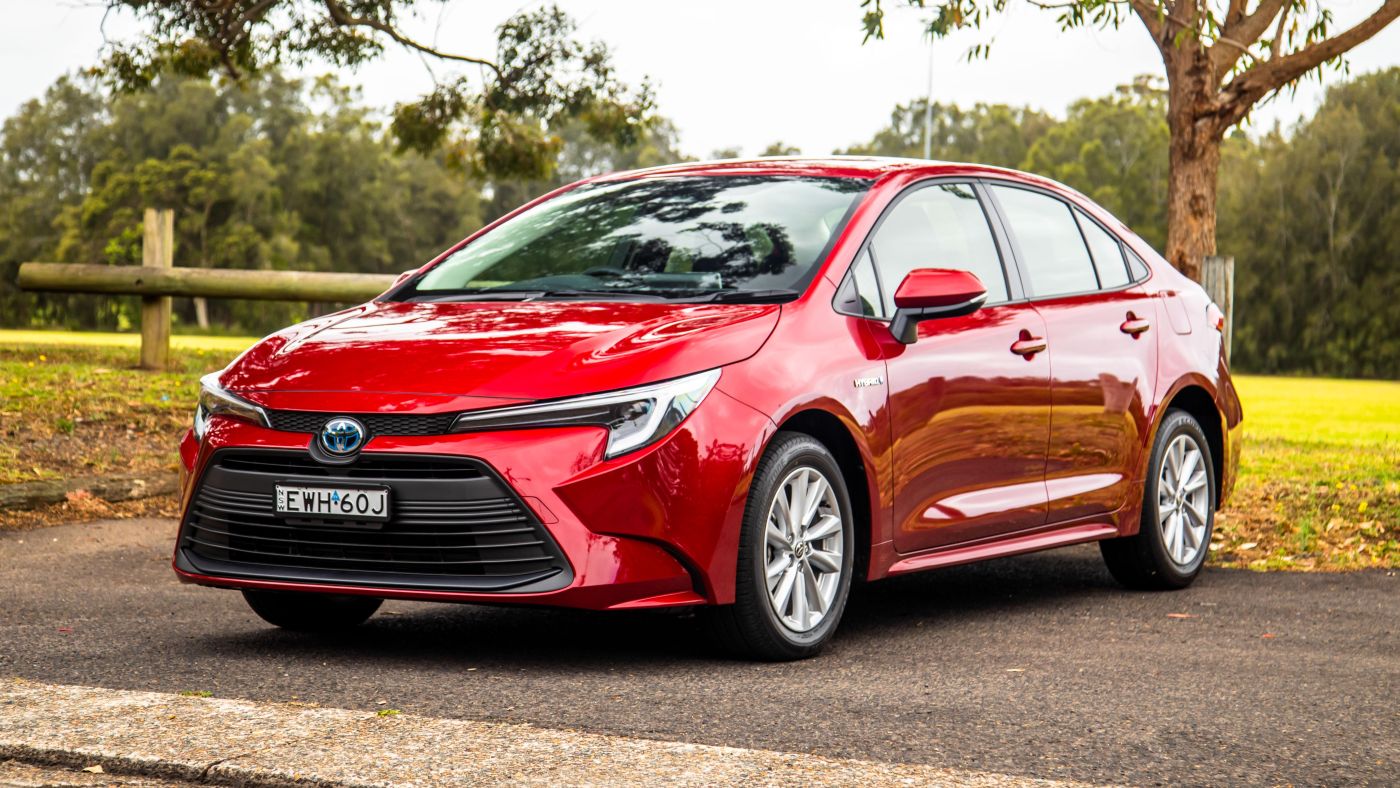
1. Toyota Corolla Hybrid
The Toyota Corolla Hybrid stands out as one of the most economical sedans when it comes to annual registration fees, a benefit largely driven by its hybrid powertrain and compact engine size.
With a 1.8-liter gasoline engine coupled with an electric motor, this sedan exemplifies efficiency, producing lower carbon emissions that often translate into reduced registration fees in regions that assess charges based on environmental impact.
Many governments implement incentive programs targeting hybrids like the Corolla Hybrid, designed to encourage cleaner driving habits by offering registration fee reductions or exemptions. This policy framework effectively rewards buyers who invest in greener technology, creating tangible long-term savings that extend beyond fuel economy.
Beyond the technical specifications, the Corolla Hybrid’s impact on registration fees is also linked to its adherence to stringent emission standards. It typically meets or surpasses the regulatory thresholds set by emissions authorities, thus positioning it favorably within fee structures that penalize high-emission vehicles.
Additionally, the vehicle’s moderate engine displacement keeps it safely within the lower brackets of engine-based taxation systems, sparing owners from the steep surcharges imposed on larger engines.
This combination of efficient fuel consumption, hybrid technology, and modest engine size ensures the Corolla Hybrid’s ongoing costs remain manageable, making it a favorite among environmentally conscious and budget-savvy buyers alike.
Another important factor contributing to the Corolla Hybrid’s low registration fees is its global popularity and widespread availability. Because it is manufactured and sold in large volumes across many countries, Toyota has optimized the vehicle’s compliance with diverse emission regulations, making it eligible for fee benefits almost universally.
This standardization provides owners with predictable and relatively low registration costs regardless of their location, reinforcing the Corolla Hybrid’s reputation as a cost-effective and eco-friendly sedan. The vehicle’s affordability coupled with minimal recurring fees presents a compelling ownership proposition.
Finally, the Corolla Hybrid’s design philosophy focuses on balancing efficiency and practicality without sacrificing everyday usability. It delivers enough power to satisfy urban commuting and highway driving needs, yet maintains its low fee status due to environmental considerations.
The financial relief offered by lower registration fees complements the overall savings generated through fuel efficiency and maintenance reliability, resulting in one of the lowest total costs of ownership in the compact sedan segment. For drivers looking to reduce their environmental impact while keeping recurring expenses down, the Toyota Corolla Hybrid remains an excellent choice.
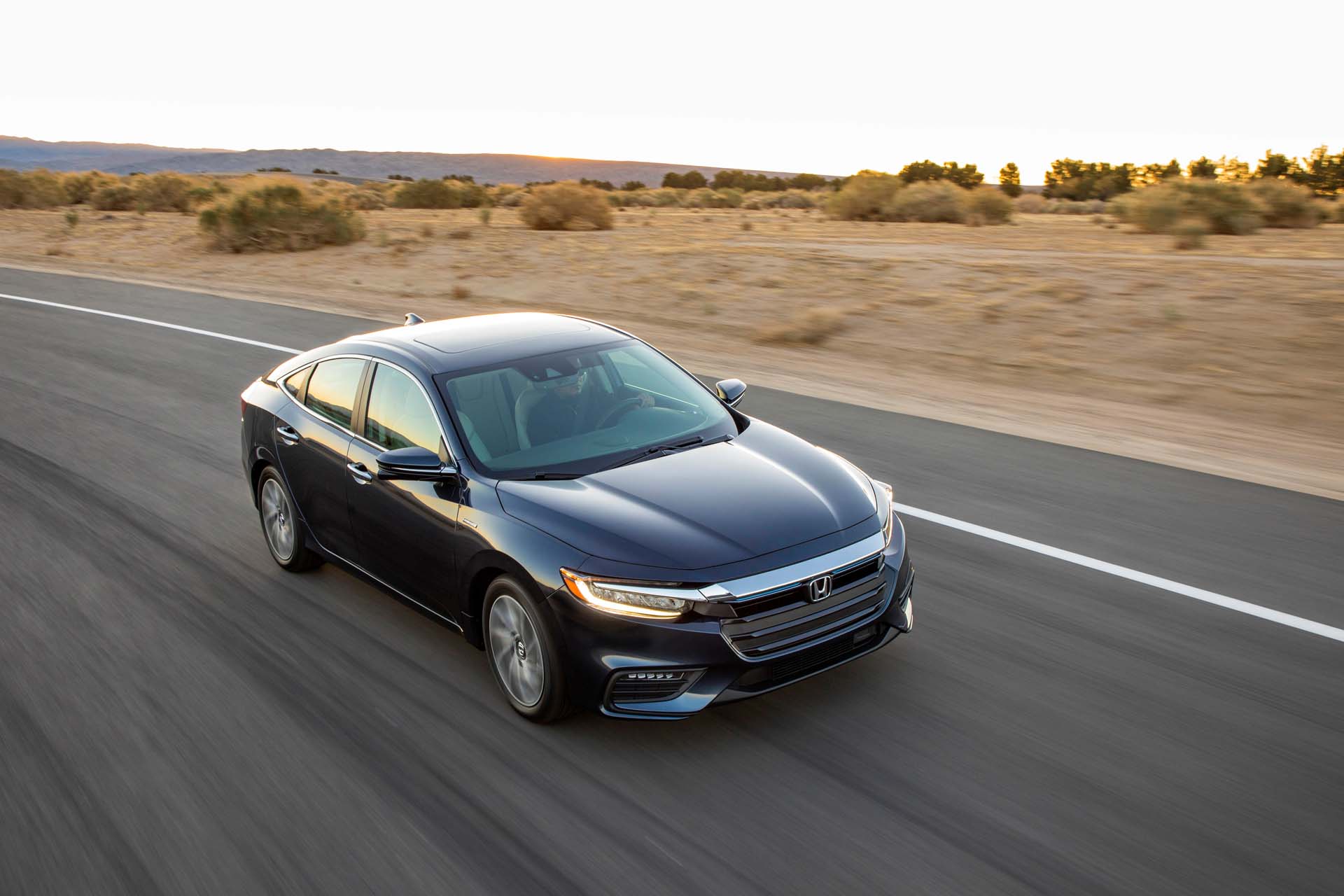
2. Honda Insight
The Honda Insight is another hybrid sedan that benefits from some of the lowest annual registration fees, thanks to its efficient 1.5-liter engine paired with an electric motor system. The Insight has consistently been recognized for its smooth ride quality and fuel efficiency, positioning it as a sensible alternative for those seeking a cost-effective and environmentally responsible sedan.
Its relatively small engine displacement ensures that it remains in lower tax brackets, especially in jurisdictions where registration fees are calculated based on engine size or emissions. Moreover, many states and countries offer registration discounts or rebates specifically for hybrid vehicles, enabling Insight owners to save substantially over the life of the vehicle.
Honda’s engineering focus on efficiency and emissions control plays a crucial role in the Insight’s ability to qualify for reduced fees. The car’s hybrid system is designed to optimize fuel use, reducing exhaust emissions significantly compared to conventional gasoline-powered vehicles.
This eco-friendly attribute aligns perfectly with many government fee structures aimed at encouraging greener transportation. Consequently, the Insight often qualifies for these benefits, contributing to its standing as a sedan with some of the lowest registration fees in its class. For drivers prioritizing sustainability and cost savings, the Insight offers a well-rounded proposition.
Further aiding its low registration fees is the Insight’s lightweight construction and aerodynamic styling. These design choices improve fuel economy and decrease emissions, factors often rewarded through lower registration fees.
Additionally, the vehicle’s smaller footprint and efficient packaging make it more accessible and practical for urban environments, where fees on heavier or larger vehicles tend to be higher. The Insight’s ability to combine low emissions with affordability and practicality makes it particularly appealing to cost-conscious consumers looking to minimize their overall vehicle expenses.
The Insight’s positioning as a hybrid sedan with low annual registration fees is reinforced by Honda’s commitment to affordable sustainability. The Insight’s competitive pricing, coupled with its potential savings on fees and fuel, provide a compelling case for ownership.
Its reliability and consistent performance add further value, ensuring that the low registration fees complement a broader package of economic and environmental benefits. Buyers focused on minimizing total ownership costs will find the Insight a highly attractive option.
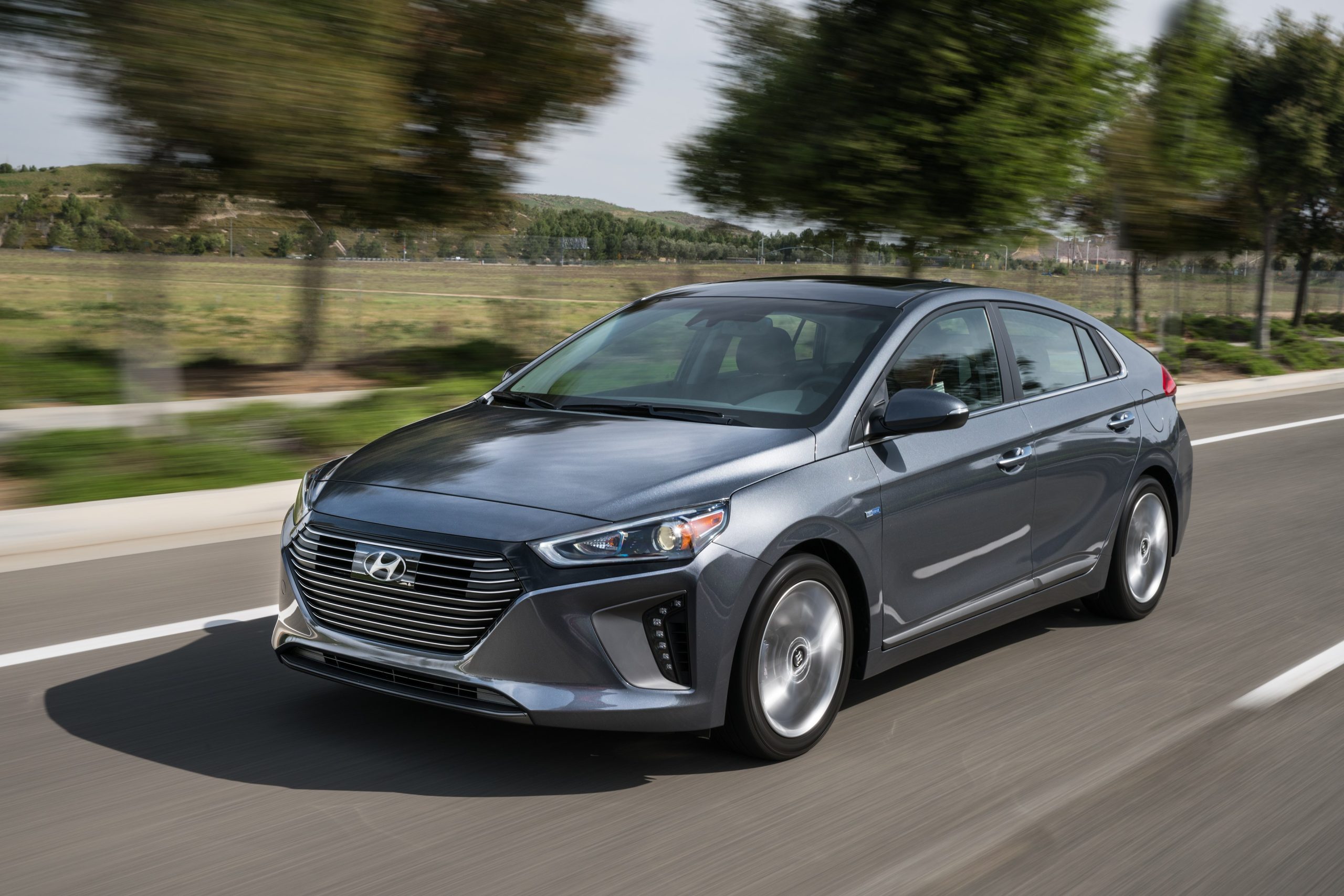
3. Hyundai Ioniq Hybrid
The Hyundai Ioniq Hybrid is a compelling contender in the category of sedans with low annual registration fees, largely due to its innovative hybrid system and highly efficient powertrain. Featuring a 1.6-liter gasoline engine combined with an electric motor, the Ioniq Hybrid delivers exceptional fuel economy figures and impressively low emissions.
These characteristics allow it to meet strict emission standards, qualifying it for reduced or waived registration fees in many regions. Furthermore, government incentives aimed at reducing pollution and promoting green technology frequently extend to vehicles like the Ioniq, making it an attractive option for buyers looking to reduce ownership costs over time.
The Ioniq Hybrid’s aerodynamic design is another key contributor to its low registration fees. Its sleek, low-drag body minimizes wind resistance, improving fuel efficiency and reducing tailpipe emissions. Since many jurisdictions calculate fees based on emissions or fuel consumption, this aerodynamic advantage translates directly into lower annual charges.
Moreover, Hyundai has engineered the Ioniq Hybrid with lightweight materials, which reduces the vehicle’s curb weight and subsequently lowers fees in regions where weight is a determining factor in registration costs.
Hyundai’s approach to sustainability and innovation is embodied in the Ioniq Hybrid’s advanced technologies and practical features. Beyond the powertrain, the vehicle offers regenerative braking, an eco-driving mode, and other systems designed to optimize efficiency and environmental friendliness.
These innovations support its low emission profile and thus its eligibility for reduced registration fees. Buyers looking for a modern sedan that aligns with evolving regulatory landscapes will appreciate the Ioniq Hybrid’s ability to deliver savings both at purchase and in ongoing fees.
Finally, the Hyundai Ioniq Hybrid’s competitive pricing and comprehensive warranty coverage make it a practical choice for budget-minded consumers. Its low registration fees enhance its affordability over the long term, reinforcing Hyundai’s reputation for value.
The synergy between fuel efficiency, emission reductions, and lower fees ensures that the Ioniq Hybrid is positioned as one of the most cost-effective sedans to own and operate, particularly for drivers seeking to minimize the financial burden of annual vehicle registration.
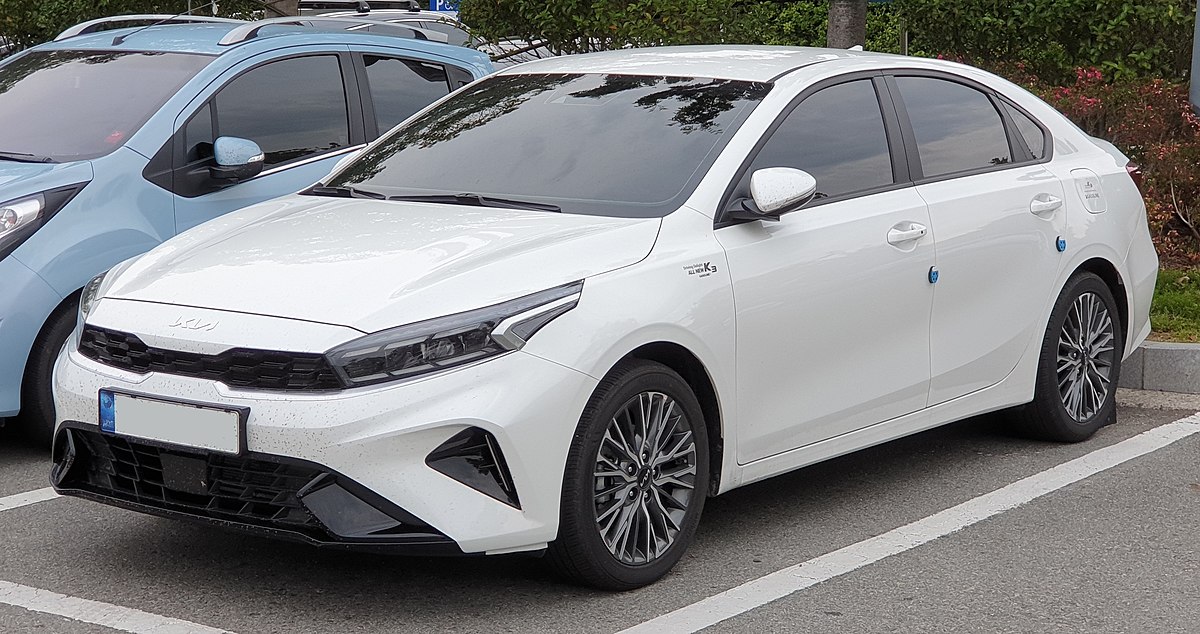
4. Kia Forte
The Kia Forte may not be a hybrid, but it remains one of the sedans with relatively low annual registration fees due to its balanced design and moderate engine size. Typically equipped with a 2.0-liter four-cylinder engine, the Forte falls into lower tax or fee brackets in many regions compared to larger or high-performance vehicles.
Its efficient fuel consumption and respectable emissions output help it qualify for affordable registration costs, making it an appealing option for buyers who want to control their ongoing vehicle expenses without investing in hybrid technology.
Kia’s reputation for reliability and affordability further strengthens the Forte’s position in the low registration fee category. The company’s focus on delivering practical, well-equipped vehicles at reasonable prices means the Forte is often chosen by cost-conscious consumers who need a straightforward sedan for everyday use.
Its lower annual registration fees contribute to an attractive overall ownership cost, providing savings that accumulate significantly over several years.
Another factor that contributes to the Forte’s lower fees is its moderate curb weight. In many areas, vehicle weight influences registration charges, with heavier vehicles incurring higher fees.
The Forte’s relatively lightweight design helps it avoid these penalties, especially compared to bulkier sedans or SUVs. This aspect makes the Forte particularly well-suited for urban drivers or those living in regions where weight-based fees are common.
Despite not having a hybrid drivetrain, the Kia Forte’s combination of fuel efficiency, moderate engine displacement, and balanced weight allows it to maintain a low-fee status.
Buyers who prefer traditional gasoline sedans but want to keep recurring fees manageable will find the Forte to be a sensible and financially prudent choice. It represents an accessible entry point into sedan ownership without compromising too much on performance or economy.
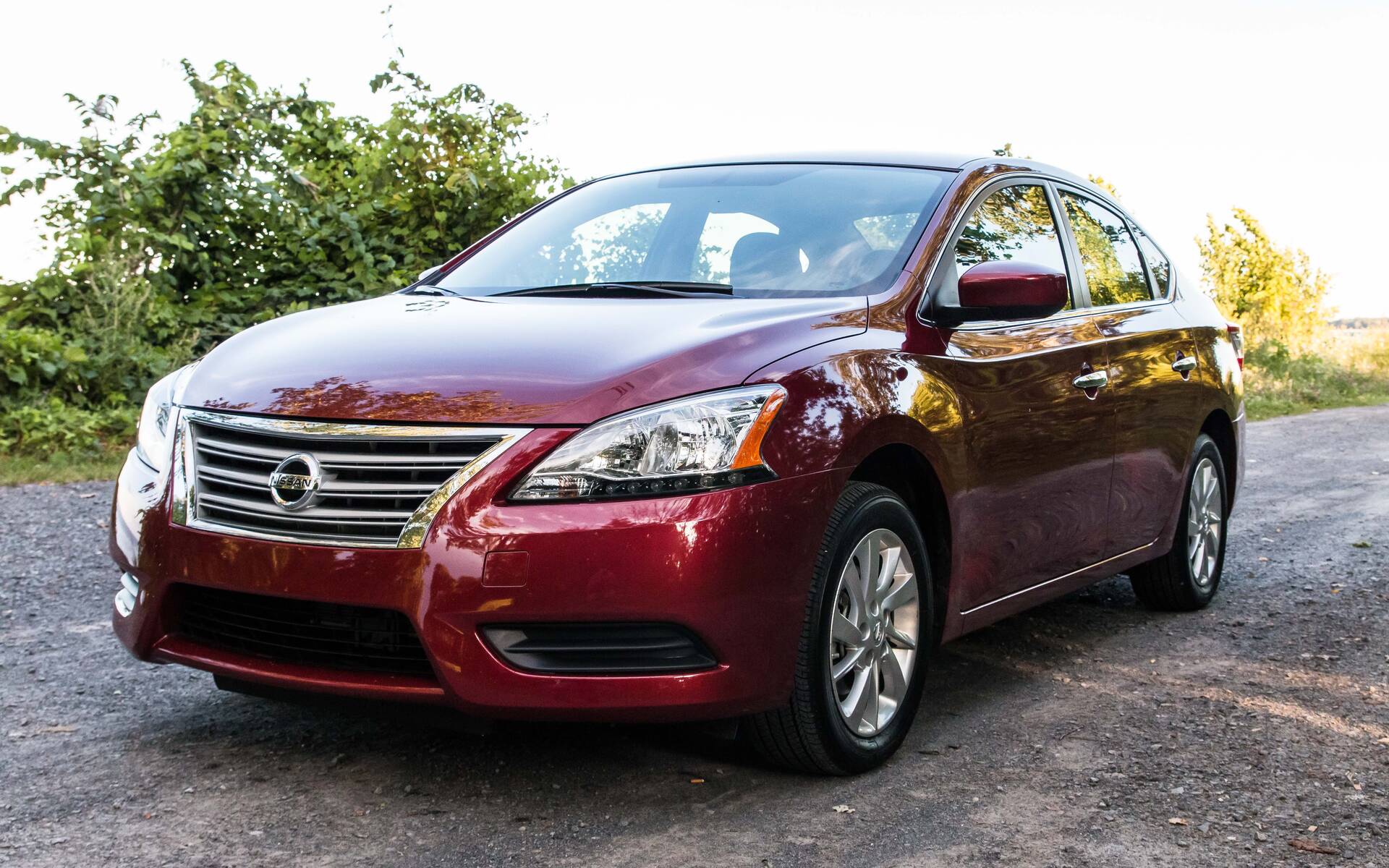
5. Nissan Sentra
The Nissan Sentra is another excellent example of a sedan that benefits from low annual registration fees, thanks primarily to its efficient 1.8-liter engine and focus on fuel economy.
The Sentra’s small displacement engine helps it stay within favorable tax brackets, particularly in regions where fees are calculated based on engine size, emissions, or fuel consumption. This positioning makes it a popular choice among buyers seeking an affordable, practical sedan with minimal ongoing costs.
Nissan’s consistent engineering of the Sentra emphasizes reliability, fuel efficiency, and comfort, ensuring the vehicle remains competitive in the compact sedan segment.
Its relatively low emissions output allows it to qualify for reduced registration fees in many areas, particularly where governments are pushing for cleaner air and more sustainable transportation options. These fee advantages help offset some of the ownership costs, making the Sentra an economical choice.
The Sentra’s lightweight construction also plays a role in its fee classification. In jurisdictions where registration fees scale with vehicle weight, the Sentra’s modest curb weight helps keep annual fees manageable.
Combined with efficient fuel consumption, these characteristics support its status as one of the sedans with the lowest registration costs. Its practicality and affordability make it especially popular with commuters and small families.
Finally, the Sentra balances performance and economy, offering sufficient power for everyday driving while maintaining cost-effective operation.
Its compliance with emission regulations and efficient design ensures that owners benefit from reduced registration fees, enhancing the overall value proposition. For drivers focused on minimizing recurring vehicle expenses, the Nissan Sentra offers a reliable and financially sound choice.
5 Sedans with the Highest Annual Registration Fees

1. BMW M5
The BMW M5 is a high-performance luxury sedan that commands some of the highest annual registration fees in the sedan category, driven largely by its powerful engine and premium status.
Equipped with a 4.4-liter twin-turbocharged V8 engine, the M5 produces immense horsepower and torque, which significantly increase its tax liabilities in regions where fees are calculated based on engine displacement or power output.
Governments often impose higher registration fees on vehicles with larger engines or those classified as high-performance, both to offset their environmental impact and to generate revenue from luxury or specialty vehicles. The M5 fits this profile perfectly, being a car that emphasizes speed, power, and exclusivity.
In addition to the engine size, the M5’s registration fees are impacted by its classification as a luxury vehicle. Many jurisdictions levy additional taxes or surcharges on high-end cars, partly as a measure to discourage excessive pollution and partly as a form of progressive taxation on affluent consumers.
The M5’s extensive list of luxury features, advanced technologies, and premium materials places it squarely within this category, resulting in steeper registration fees. Furthermore, its high resale value often correlates with higher registration costs, as some areas use vehicle value as a component in determining fees.
The environmental impact of the BMW M5 also plays a key role in its elevated registration costs. While modern iterations of the M5 have incorporated mild hybrid systems and efficiency enhancements, the sheer size and power of its engine result in higher CO2 emissions compared to smaller or hybrid vehicles.
Since many regions factor emissions into their registration fee calculations, the M5’s relatively high emissions profile translates into increased fees. This is especially true in cities or countries with aggressive emissions reduction policies, where powerful performance cars face penalties or fees meant to discourage their widespread use.
Lastly, owning a BMW M5 often comes with higher insurance and maintenance costs, and the registration fees are just one part of the overall expense. Prospective owners must consider these recurring fees as part of the total cost of ownership.
The high registration fees reflect the exclusivity and performance-oriented nature of the vehicle, underscoring that while it delivers exceptional driving dynamics and luxury, it also demands a premium in ownership costs. For enthusiasts who prioritize performance and prestige, the M5’s fees are a tradeoff for an extraordinary driving experience.
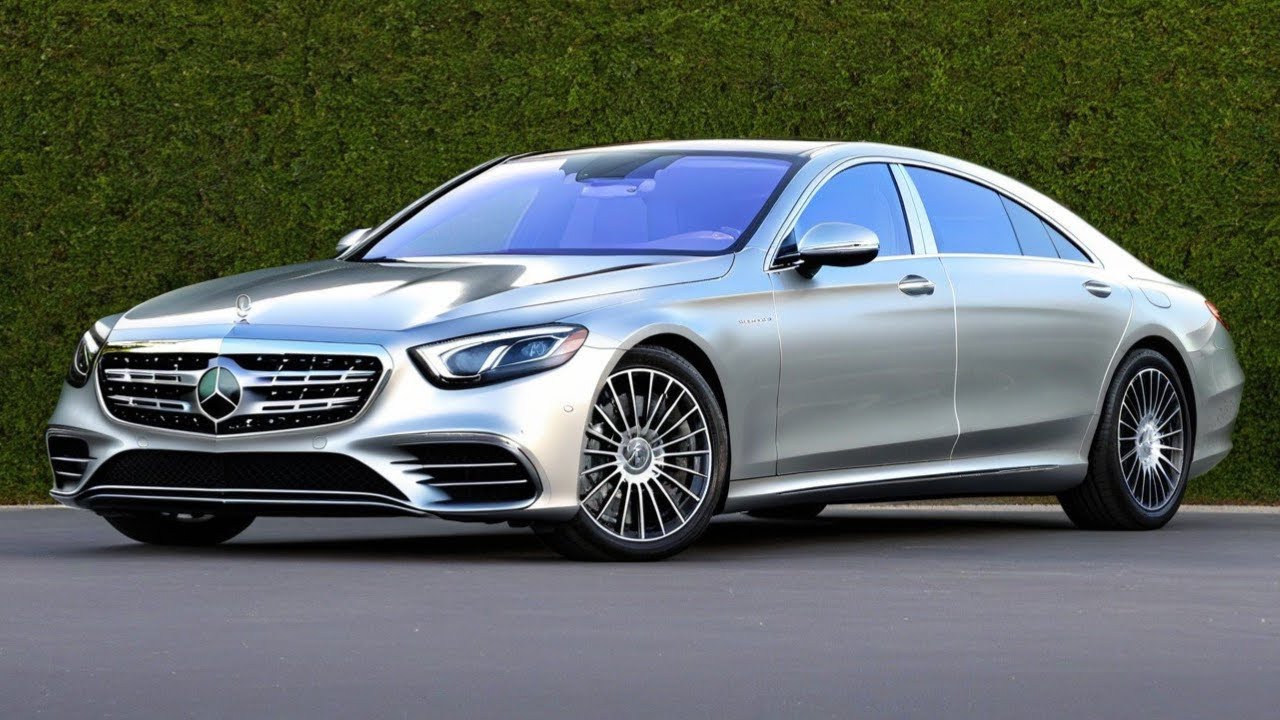
2. Mercedes-Benz S-Class
The Mercedes-Benz S-Class is widely regarded as the pinnacle of luxury sedans, and this status comes with some of the highest annual registration fees in the sedan segment. Featuring powerful engine options that include V6, V8, and V12 variants with displacements ranging from 3.0 to over 6.0 liters, the S-Class is subject to high registration fees in many regions that scale charges based on engine size or emissions.
Its large engine configurations combined with advanced luxury features push the vehicle into premium tax brackets, reflecting its status as a top-tier luxury sedan that emphasizes comfort, technology, and performance.
In addition to engine displacement, the S-Class’s high registration fees are influenced by its substantial curb weight and size. Heavier vehicles typically incur higher fees in jurisdictions that use weight as a criterion for registration charges, and the S-Class, with its long wheelbase, reinforced chassis, and extensive equipment, is considerably heavy.
This results in higher fees compared to lighter sedans, as the vehicle’s weight can contribute to increased road wear and fuel consumption, justifying steeper registration costs from a regulatory perspective.
Another contributing factor to the S-Class’s elevated fees is its emissions profile. While Mercedes has made strides in improving fuel efficiency and reducing emissions, particularly with newer models offering hybrid variants, the traditional large displacement engines still produce higher CO2 emissions than smaller or hybrid vehicles.
Many governments implement registration fee structures that penalize high-emission vehicles to encourage cleaner alternatives, and the S-Class’s emissions place it in a higher fee category. Moreover, luxury sedans often come equipped with multiple auxiliary systems and features that can add to the vehicle’s overall energy consumption.
The prestige and exclusivity of owning a Mercedes-Benz S-Class further amplify its registration fees. In some countries, vehicles deemed luxury or status symbols attract higher taxes and fees as a way to target wealthier individuals and offset the environmental footprint of such cars.
These luxury surcharges, combined with fees tied to engine size, weight, and emissions, position the S-Class among the costliest sedans to register annually. While it offers unmatched comfort, safety, and technological sophistication, owners must be prepared for substantial recurring costs that reflect the sedan’s elite status.

3. Audi RS7
The Audi RS7 is a high-performance, sport-oriented sedan that commands some of the highest annual registration fees due to its powerful 4.0-liter twin-turbo V8 engine and luxury classification. Designed for speed and precision, the RS7’s performance credentials place it in a tax bracket reserved for powerful, high-displacement vehicles.
The vehicle’s high horsepower and torque output not only increase registration fees but often lead to additional environmental levies in regions that factor emissions and fuel consumption into fee structures. The RS7 combines the allure of a luxury sedan with the raw power of a sports car, resulting in a costly but thrilling ownership experience.
The RS7’s annual registration fees are also influenced by its weight and equipment levels. This model comes equipped with advanced technology, safety systems, and premium materials that add to its overall mass and complexity.
Weight-based fees in certain jurisdictions mean that heavier cars like the RS7 face higher annual charges, as heavier vehicles contribute more to road wear and fuel inefficiency. Additionally, the vehicle’s advanced features and high market value often attract luxury taxes or surcharges that push registration fees higher still.
Environmental regulations play a significant role in the RS7’s fee structure. Despite Audi’s use of turbocharging and advanced fuel-saving technologies, the 4.0-liter V8 engine produces significant emissions compared to smaller or hybrid engines.
Many regions have stepped up penalties or fee hikes for vehicles with larger carbon footprints, aiming to reduce pollution and encourage cleaner vehicles. The RS7’s powerful engine and sporty tuning, while delivering thrilling performance, incur a price in higher registration fees aligned with regulatory goals for emissions reduction.
Finally, the Audi RS7’s registration fees reflect its positioning as a vehicle for discerning buyers who value performance, luxury, and advanced technology.
While the fees are among the highest, many owners accept these costs in exchange for the car’s dynamic capabilities, sophisticated design, and prestigious brand image. For those seeking a high-powered sedan that combines sportiness with elegance, the RS7 is an alluring choice despite its higher recurring fees.

4. Jaguar XJ
The Jaguar XJ has long been synonymous with British luxury and performance, but its powerful engines and premium build come with some of the highest annual registration fees among sedans.
The XJ’s engine options range from V6s to large displacement V8s, many of which place the vehicle in high-fee categories in regions where engine size or emissions dictate registration costs. Its status as a flagship luxury sedan means it also attracts additional fees associated with high-value vehicles. These fees reflect the XJ’s combination of size, performance, and exclusivity.
Vehicle weight is a significant factor contributing to the Jaguar XJ’s elevated registration fees. The XJ’s construction incorporates substantial soundproofing, luxury materials, and advanced safety features, all of which add to its curb weight.
In jurisdictions where weight influences registration fees, this makes the XJ a more expensive vehicle to register annually. Heavier vehicles are generally considered more taxing on infrastructure, justifying higher fees to support road maintenance and environmental goals.
Emission levels for the Jaguar XJ tend to be higher than average due to its engine sizes and performance tuning. While newer models may offer mild hybrid options or improved efficiency, traditional XJ models with large V8 engines produce substantial CO2 emissions, pushing them into higher registration fee brackets.
Environmental policies aimed at reducing pollution often impose higher charges on such vehicles to encourage the adoption of cleaner alternatives. This contributes to the XJ’s reputation as a costly vehicle in terms of recurring ownership expenses.
Lastly, the Jaguar XJ’s high annual registration fees underscore the costs associated with owning a classic luxury sedan that blends performance with opulence.
Buyers pay a premium not only at purchase but throughout ownership, reflecting the vehicle’s positioning in the market. For those who appreciate the XJ’s refined design, heritage, and driving experience, the fees are a necessary part of owning an elite luxury vehicle, but they do contribute significantly to the overall cost of ownership.
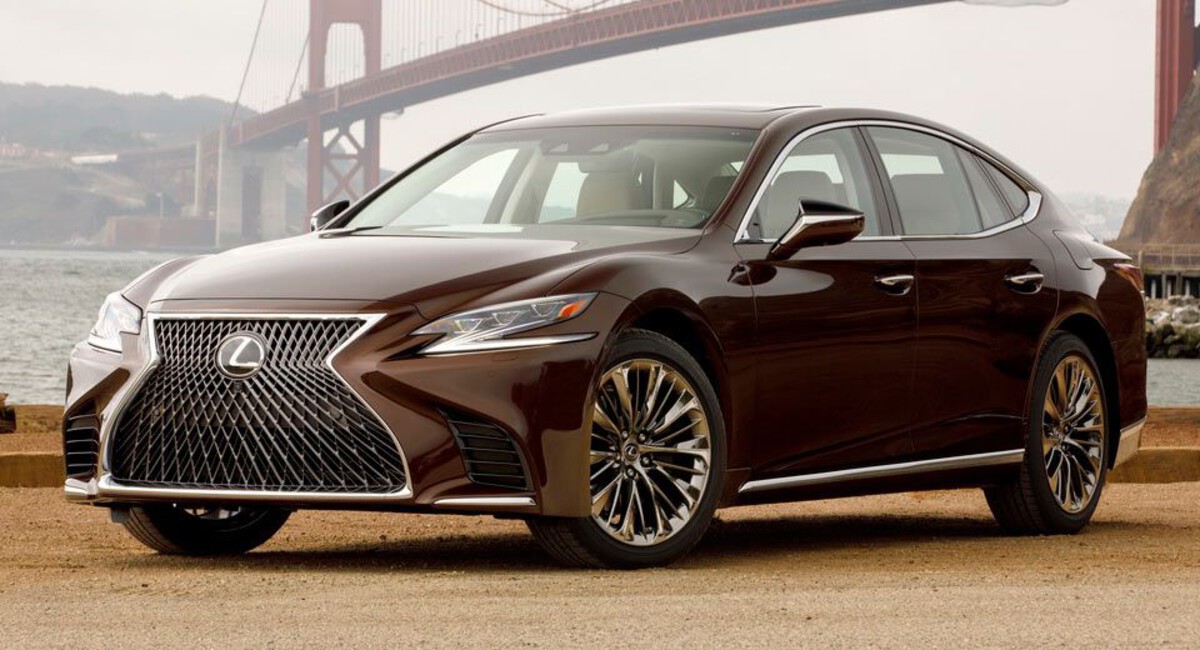
5. Lexus LS
The Lexus LS represents the flagship of Lexus luxury sedans, offering a blend of refinement, technology, and powerful engine options that result in some of the highest annual registration fees in its segment.
Engine sizes typically range from 3.5 to 5.0 liters, depending on the model and trim level, pushing the LS into premium fee categories based on engine displacement or emissions. The Lexus LS’s reputation for reliability and luxury does not exempt it from these fees, which are a reflection of its large engine sizes and premium features.
Weight is another factor that increases the LS’s registration fees. The sedan’s large dimensions, extensive soundproofing, advanced suspension systems, and luxury amenities add significantly to its curb weight.
Jurisdictions that assess registration fees on vehicle mass charge owners of heavier vehicles more, given their greater impact on road infrastructure and fuel consumption. The LS’s well-appointed interior and advanced tech contribute to its high weight, which in turn drives up annual registration fees.
Emissions standards also impact the LS’s fee structure. While Lexus has made strides in hybrid technology, many LS models rely on powerful gasoline engines that emit higher levels of CO2 compared to smaller or hybrid sedans.
Regions with stringent emission-based fees place the LS in higher tax brackets, increasing the cost of annual registration. This is particularly true in urban centers with aggressive environmental policies aimed at curbing pollution from large luxury vehicles.
In conclusion, the Lexus LS’s annual registration fees reflect its position as a luxury flagship sedan that combines performance, size, and prestige. Although it offers unparalleled comfort and advanced features, prospective owners must be prepared for the recurring financial commitment of elevated registration fees. These costs, alongside insurance and maintenance, contribute to the LS’s overall ownership expense, underscoring the premium nature of the vehicle.
Also Read: 5 Sedans With Best Throttle Response And 5 That Are Sluggish
In the world of automotive ownership, annual registration fees are a critical, yet frequently underestimated, component of a vehicle’s total cost of ownership. This article has explored the significant disparities between sedans that carry some of the lowest and highest registration fees, highlighting the diverse factors that influence these recurring charges.
Understanding these differences is essential for anyone considering purchasing a sedan, whether their priority is minimizing long-term expenses or indulging in the luxury and performance offered by premium models.
The sedans with the lowest annual registration fees, such as the Toyota Corolla Hybrid, Honda Insight, Hyundai Ioniq Hybrid, Kia Forte, and Nissan Sentra, exemplify the increasing emphasis on efficiency and environmental responsibility in the automotive market.
These vehicles are engineered to comply with stringent emissions standards, often featuring hybrid powertrains or small, efficient gasoline engines. Such technologies allow them to qualify for reduced registration fees or exemptions in many jurisdictions, providing buyers with substantial savings year after year.
In addition to lower fees, these sedans typically offer excellent fuel economy, lower maintenance costs, and a more affordable purchase price, making them ideal for budget-conscious consumers and environmentally minded drivers alike.
On the opposite end of the spectrum, luxury and performance sedans like the BMW M5, Mercedes-Benz S-Class, Audi RS7, Jaguar XJ, and Lexus LS highlight the financial realities of owning vehicles with larger engines, higher emissions, and premium status.
These models command high registration fees driven by their engine displacement, curb weight, emissions profiles, and luxury surcharges. Their elevated fees serve as a reminder that while these sedans deliver exceptional performance, advanced technology, and unmatched comfort, such attributes come with significant recurring costs.
Potential owners must consider these fees as part of the comprehensive cost of ownership, alongside factors such as insurance, maintenance, and fuel consumption.
The contrast between these two groups underscores the broader trends shaping today’s automotive landscape. Increasing regulatory focus on emissions and environmental impact is reshaping vehicle taxation and registration fee structures, incentivizing manufacturers and consumers to prioritize sustainability and efficiency.
Meanwhile, the continued demand for luxury and high-performance vehicles ensures that premium sedans maintain their high fee brackets, reflecting their distinct market positioning and cost profiles.
For prospective sedan buyers, awareness of annual registration fees should influence their decision-making process. Lower registration fees can substantially reduce the financial burden of vehicle ownership over time, complementing savings on fuel and maintenance.
Conversely, buyers of high-performance or luxury sedans should budget carefully for the increased registration costs alongside the premium features they desire. In both cases, a thorough understanding of local registration fee structures and incentives is invaluable for making informed, cost-effective choices.
In conclusion, the dynamic between sedan models with the lowest and highest annual registration fees encapsulates the balance between affordability, environmental responsibility, luxury, and performance.
Whether choosing a fuel-efficient hybrid or a powerful luxury machine, factoring in registration fees is vital to a realistic assessment of what vehicle ownership truly costs. By comprehending these nuances, drivers can better align their vehicle choices with their financial goals and personal preferences, ensuring a rewarding and sustainable ownership experience.
